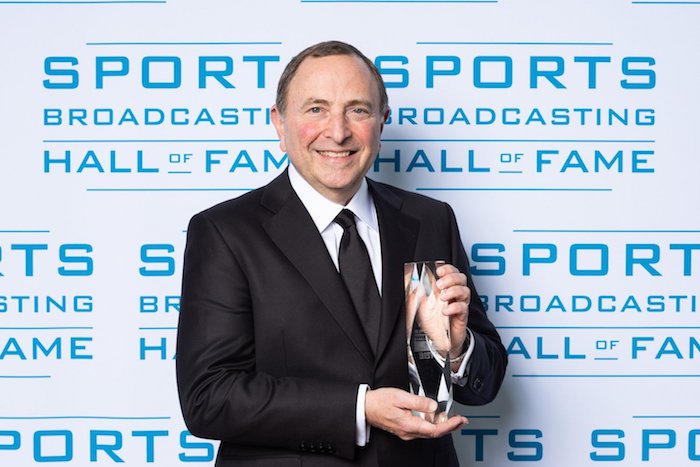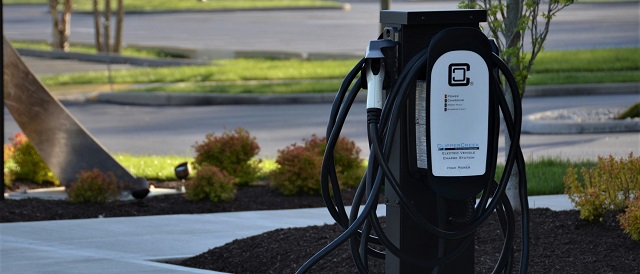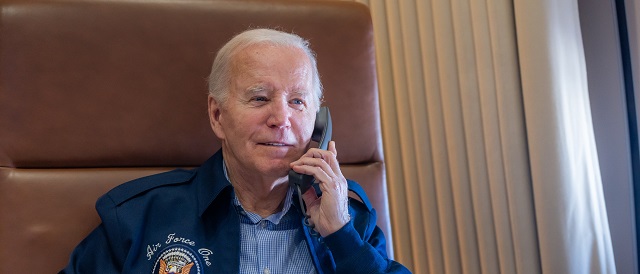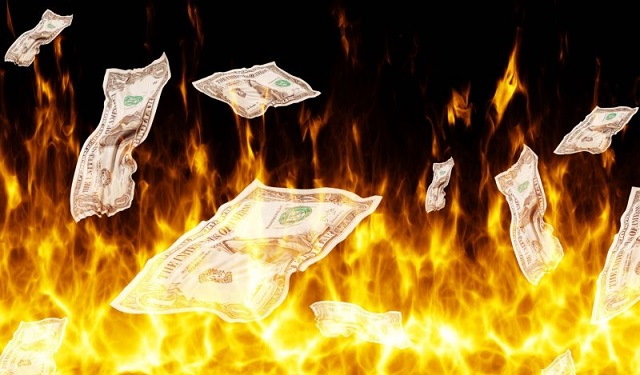Bruce Dowbiggin
Hockey’s Image Problem: The Commissioner Who Won’t Leave

We once had a former MLB player/ media type tell us that if he were a manager he’d prefer his players go to their hotels after the game, smoke a little weed, play video games and get proper sleep. Especially now that smoking weed is legal in large parts of the continent. Staying up till 3 A.M. chasing girls in bars was the road to ruination, he said.
Apparently the NBA agrees. It is announcing that it will no longer test for marijuana as part of its drug-testing protocols. In its new collective bargaining agreement the NBA has dragged sports into the 21st century. By that we don’t mean the NHL will follow.

Gary Bettman’s NHL never misses an opportunity to miss an opportunity at modernizing its product. Stasis would be the best word to describe the hermetically sealed snow globe that is the NHL. Even when it embraces change it does so in a way that tarnishes the League. See: Non-binary hockey and Pride Nights. So you know that the NHL will only drop testing for weed when it can be used as a weapon in future CBA tong wars against new NHLPA executive director Marty Walsh.
To grasp how sluggish the development of the NHL has become under The Commissioner Who Won’t Go Away, one need only look to the NBA which this weekend announced its new collective bargaining agreement with its players. The NBA CBA was done without even the threat of a work stoppage and is full of innovations and progressive ideas on how a sports league with a salary cap needs to operate.
In the NHL a collective agreement is never reached till Bettman has wiped out large segments of the season, necessitating class warfare with his product, the players. While pissing off the consumers of his sport and the networks who carry the games. [We remain opposed to salary caps in a global sports market, as we documented in our 2018 book Cap In Hand: How Salary Caps Are Killing Pro Sports and Why The Free Market Could Save Them.]

What does this deal say? First, the league is responding to the popularity of soccer’s many midseason competitions and the successful recent World Classic Baseball by committing to a midseason “tournament”. To qualify, teams will participate in pool games already on the regular-season schedule. Eight teams will get into the final play-down in “December Madness”, which will receive buckets of media exposure. Winning players and coaches will get extra money, which should help increase their motivation.
The reason behind this is simple, as we stated in Cap In Hand. In a global sports market, fans don’t want to wait for six months to see their favourites play meaningful games. They also want to see best-on-best as often as possible. Witness: Soccer’s Champions or Europa Leagues that play concurrent with the Premiership or La Liga schedule. We had a former NHL executive promote this ideas to us over a decade ago.
Of course, Bettman, the Herman Roth of commissioners, ignored him. He still believes Columbus versus Winnipeg on a January night is enough to keep the fans happy. Under his watch international play— once the crown jewel of the sport— has withered and died. World Cup? That’s a whole lot of bother for owners who like the Bettman formula they bought into. Right now there is one Stanley Cup winner and 31 losers.
There will no doubt be some bumps as NBA fans get the hang of the tournament formula. There are those who will moan about how the NBA CBA does nothing for mid-sized markets. “Players lose again … Middle and Lower spectrum teams don’t spend because they don’t want to,” Golden State’s Draymond Green posted to Twitter. “They want to lose… And this is what we rushed into a deal for?” (Draymond, outside of local markets no one cares about mid-sized teams any more.)
But it says here that the fans will grab onto the December Madness tournament formula. As will the exploding betting industry. But the NHL won’t touch this novel project— or Olympics or World Cups— till Bettman squeezes the NHLPA at the next CBA session.
The NBA CBA, which runs till 2030, also says players will have to play 65 games to qualify for season-ending awards, cutting back on “maintenance days” for superstars. It also will allow players making ga-jillions to now be owners of teams, invest in other sports franchises or lose all their money… er, invest in the cannabis industry. Having players learn the other side of the business can only be a positive. Under Bettman’s rule the top players never make near their worth, so this would be moot in the NHL.

The only threat to Bettman’s status quo is the financial collapse of many regional sports networks in the U.S., the backbone of his U.S. strategy. They are being hammered by the cord-cutting trend in cable TV. As we wrote here in January, for a league like the NHL that has counted heavily on regional revenues the past 30 years cord-cutting is a disaster. “Greg Boris, a sports management professor at Adelphi University summed up the looming disaster: RSNs have ‘been a golden goose. You remove cable TV from the scenario, and franchises are worth a fraction of what they are today, players make a fraction of their salaries today…”
In March, Bally Sports— which operates 14 regional sports networks in the U.S. (covering 12 NHL clubs)— filed for bankruptcy protection to eliminate about $8 B in debt. The hope is that Chapter 11 will give them time to re-organize. But that won’t change the collapsing numbers of subscribers who bail on services for channels they never watch. Already, Bally is looking to reject the contracts of four MLB teams as part of the bankruptcy.

Time Warner Discovery, too, has said they are looking to exit the regional sports network business. While leagues like the NHL might move to streaming services, there is little expectation that it will produce the same revenues. Ergo, financial collapse.
Maybe a ruinous TV contract might finally send Bettman into retirement and the NHL into an enlightened age. Till then everyone probably needs a little weed to get through the process.
Sign up today for Not The Public Broadcaster newsletters. Hot takes/ cool slants on sports and current affairs. Have the latest columns delivered to your mail box. Tell your friends to join, too. Always provocative, always independent. https://share.hsforms.com/16edbhhC3TTKg6jAaRyP7rActsj5
Bruce Dowbiggin @dowbboy is the editor of Not The Public Broadcaster A two-time winner of the Gemini Award as Canada’s top television sports broadcaster, he’s a regular contributor to Sirius XM Canada Talks Ch. 167. Inexact Science: The Six Most Compelling Draft Years In NHL History, his new book with his son Evan, was voted the seventh-best professional hockey book of all time by bookauthority.org . His 2004 book Money Players was voted sixth best on the same list, and is available via http://brucedowbigginbooks.ca/book-personalaccount.aspx
Bruce Dowbiggin
Why Do The Same Few Always Get The Best Sports Scoops?

The Toronto Maple Leafs made the “what colour is that green light?” decision to fire their head coach Sheldon Keefe last week. The removal of Keefe after five years followed a dispiriting first-round playoff series loss to a very ordinary Boston Bruins team. Coaching may or may not have been the root cause of that loss. (Keefe himself admitted “teams are waiting for the Leafs to beat themselves”.)
The real reason for the firing is 1967, and we don’t think we need add more than that.
In essence, the management of MLSE— the owner of the Maple Leafs and a lot of other sports stuff in Toronto— needed to throw a body to the baying hounds of disappointment. Also known as Leafs Nation. Newly minted CEO Keith Pelley, fresh from the PGA Tour/ LIV psychodrama, was certainly not going to pay the price.
Nor was GM Brad Treliving who has only been on the job for two seasons. The key decisions on Toronto’s lopsided salary cap were decided long before Treliving occupied his desk. That left two people in vulnerable positions. 1) Maple Leafs president Brendan Shanahan, who has been drawing an MLSE cheque for a decade. 2) Keefe.
When was the last time you saw a coach fire a team president? Precisely. Keefe joins the list of (briefly) unemployed coaches who circulate in the NHL like McKinsey consultants. Shanahan gets a lukewarm mulligan from Pelley. But after the failure of the Kyle Dubas experiment— “who needs experience?”— and now just a single playoff series win in a decade Shanny’s best-before date has arrived.

Toronto Maple Leafs president Brendan Shanahan attends a news conference in Toronto on April 14, 2014. Toronto Maple Leafs president Brendan Shanahan said Peter Horachek will remain the team’s interim head coach until the end of the season. Shanahan met the media Friday for the first time since coach Randy Carlyle was fired on Tuesday. THE CANADIAN PRESS/Chris Young
Depending on who he and Treliving enlist to coach— remember, Mike Babcock was too tough and Keefe was probably too player friendly— it had better produce instant results. Because Shanny, the pride of Mimico, is out of chances. The coach choice will also be affected by whichever player or players that management decides are superfluous to ending the Leafs’ ridiculous run of misery.
The Leafs brass’ press conference last Thursday did little to shed light on what happens after Keefe’s expulsion. Just a lot of MBA determinism on a bed of baffle gab. A crabby Steve Simmons question/rant briefly threatened the harmony of the moment, but order was restored. And the media bitching switched from the press box to social media and podcasts.
Speaking of the fourth estate, the other unmentioned aspect of this story— indeed every story in the NHL these days— is just how it was revealed to the public. When people sipped their morning Tim’s or Starbucks the (almost) coincident bulletins came down the social media pike about Keefe’s dismissal.
Predictably, Chris Johnston of Sportsnet and Daren Dreger of TSN announced the breaking news within heart beats of each other. While there had been speculation on Keefe’s fate for days, the announcement coming from the networks duo confirmed the story in the minds of the industry. That allowed everyone else drawing a cheque as a hockey journalist to pile in and swarm the dead body.
In today’s sports journalism, where social media has replaced newspapers, scoops are governed by a protocol. There are the heralds— in the NHL it’s currently Johnston and Dreger— and then there are the disseminators. The days of a rabble of reporters all scrambling to get a story bigger than who-will-play-in-tonight’s-game are gone. Today, it’s a very narrow funnel for scoops.
It’s the same in the NFL where Ian Rappaport (NFL Network) and Adam Schefter (ESPN) monopolize the tasty scoops on behalf of their employers, who also happen to be NFL rights holders. In the NBA, Brian Windhorst (ESPN) has the inside rail when it comes to the LeBron James/ Steph Curry scoops. In MLB… it’s probably Ken Rosenthal (The Athletic) but no one cares about baseball anymore, do they?
The leagues like it this way, doling out stories to guys they can trust. None of this is criticism of Johnston or Dreger, who have deftly maneuvered themselves into the coveted “from their lips to your ears” spots. From our own experience we can remember the exhilaration of having the best source or sources on the really big stories. Like Johnston/ Dreger, we worked hard for a long time to develop those sources and only very reluctantly let anyone else horn in on our stories.
It was also our observation that this order of things journalistic suited a lot of reporters who either couldn’t get good sources or didn’t want the stress of being first on stuff. It was enough that, like the Keefe story, they’d get the goods eventually and most fans would not care who was first. So long as you had a take. So be it.
Some resentful types took potshots at our work if it upset their pals in the dressing room or the management suite. On the Stephen Ames/ Tiger Woods story in 2001, we had the late Pat Marsden tell us on air that we’d done a great job on Ames’ criticisms of Tiger. Only to hear him lambaste us— again on FAN 590— only minutes later as we listened driving home from the studio. But we digress.
Many reporters are complacent in playing the game, so long as their bosses didn’t enquire why they are getting scooped all the time by the same few rivals. With the death of daily newspapers that doesn’t happen much any longer. (Many editors today may only see stories when publication brings a libel notice.) For them a salty take is good enough.
The scoop business is also affected by the multiple roles now demanded of sports media types. In addition to their “day job” on a beat they also have to supply digital content and talk-back hits to the Mother Ship. Most also are feeding a weekly podcast, dictating time on air rather than time working the phone. There are only so many hours in a day to chase a story.
Better to play the Breaking News waiting game.
Bruce Dowbiggin @dowbboy is the publisher of Not The Public Broadcaster A two-time winner of the Gemini Award as Canada’s top television sports broadcaster, he’s a regular contributor to Sirius XM Canada Talks Ch. 167. Now for pre-order, new from the team of Evan & Bruce Dowbiggin . Deal With It: The Trades That Stunned The NHL & Changed Hockey. From Espo to Boston in 1967 to Gretz in L.A. in 1988 to Patrick Roy leaving Montreal in 1995, the stories behind the story. Launching in paperback and Kindle on #Amazon this week. Destined to be a hockey best seller. https://www.amazon.ca/Deal-Trades-Stunned-Changed-Hockey-ebook/dp/B0D236NB35/
Bruce Dowbiggin
Getting Real About Justin’s Real Estate Economy. It Won’t Last

Have you ever been to a concert where a hot new product like Tesla is mentioned and many in the crowd applaud in approval? Have you been at a dinner party when you say you went to a new Thai restaurant, and everyone at the table explodes in rhapsodic glee? Have you ever been to see a comic and he mentions he has the latest iPhone with the nifty camera and people actually cheer?
You see those people cheering a piece of tech or a style of cuisine? Those are the people who believed Justin Trudeau when he told them to sink everything into real estate when interest rates were near zero. They. Will. Believe. Anything. So long as they think it makes them cool kids. Trudeau could say he can control the weather by stopping cows from farting, and they’ll be wearing a bovine flatulence T-shirts pronto.

Now, we can hear you laughing in derision at our skepticism about the real estate-economy that has taken over the nation— the new economy that Justin fed, watered and then bragged about. (To the exclusion of the other cornerstones of our once-dynamic nation state.) The one that will be going to Market one of these days for a meeting with an air compressor.
Again, you laugh. Despite the housing shortage Justin says we can easily accommodate two million new souls a year, no problem. He says Trump was a vile racist for wanting to exclude unhinged radicals from zombie countries back in 2017. The freshly-arrived from Trump’s “shithole countries” with “shithole value systems” and “shithole economies’ will prop up the value of Canada’s two-million dollar cash-cow bungalow in West Van or Etobicoke. And the Happy People believe.
Why? Because Justin and his cabinet are in Control, and they’ll just rein in these types when they get here and start asking that Jews be exterminated or white people surrender the merit system to DEI droogs. That little dustup at the universities where nervous trust-fund virgins claim to be onside with systemic rape? Justin can stop them anytime. Everything is cool. After all, Canada is the model for a postmodern state.
And that stuff about how the Canadian real estate market being 80 percent propped up by drug money, kleptocracy profits and Blackrock? Pshaw. That is just the Far Right Diagolons trying to panic you into hiding your money from the government which just wants to send it to the “shithole” countries in a kickback loop. If nothing else, the banks will save you— if there’s any shareholder value left after this deranged DEI diversion.
Can’t happen here? We know people who were around the EU in 2008 when the U.S. mortgage debacle cratered economies around the world. For years they’d been served by Poles in the service industry, Spaniards in the restaurant kitchens and Bulgarians doing the physical labour. Life was good. Everyone drove a Beemer and owned a condo overlooking the sea.
Then, one day, they noticed that all the airport parking lots were overflowing with Beemers that went unclaimed. No one had paid rent in months. The banks noticed that all these lovely fellow citizens of the EU had drained their savings, reached their cash credit limit on the Mastercard and skedaddled with the dough. Funny, they all must have gone on holidays to once, no?

No. They were gone. Bye bye. Adios. And the credit bubbles in Ireland, Norway, Iceland, France and other EU worthies popped like the champagne they’d been sipping for years on easy credit and idiotic notions of productivity. Nations like Iceland went bankrupt overnight. Counties in England threw their keys on the table. People’s life savings evaporated.
But Justin says that won’t happen here on his co-watch with Jagmeet the Bespoke. Sure, no one under the age of 40 can afford those two-million dollar cash-cow bungalows in West Van or Etobicoke. But those old Boomer geezers will die soon, and after we tax the daylights out of the estate, the kiddos will inherit the house. Probably after we turn it into a four-plex or fine them for having empty bedrooms because they couldn’t afford kids.
One of the ferocious beauties of market economies is their way of periodically turning on themselves when too many people are getting rich too easily. The Canadian RE economy of Justin Trudeau is one of them. It’s about a decade old without any sign of dropping. Life is good. Everyone drives a Tesla and rents a condo overlooking the sea.
Little wonder. Everything he and his faculty lounge of dimwits like Chrystia Freeland, Melanie Joly and Steven Guilbeault have done this decade has been to prop up the value of real estate owned by their real pals in Asia, Europe, the assorted kleptocracies in Africa or the sub-continent. It was like an ad for Chlorox the way these “investors” blithely laundered their dirty money in Canadian condos and low-rises. When news leaked out that mobsters were using casinos in B.C. (where Justin’s maternal side came from) as a laundering station it was covered up very quickly.
But the clock ticks. Even Justin’s former finance minister Bill Morneau is warning that the bubble is going to pop if Justin keeps printing more money to keep the real estate values so unsupportably high. The entire middle class of Canada, which has ridden the real estate train, will see their life savings evaporate like Jody Wilson Raybould’s political career.

No matter. Justin’s been living in government housing since 2015 (some of it with his Mommy). What does a trust-fund nit know about making rent cheques or a mortgage payment? Without Sophie spending like a dervish, he never needs to look at an America Express card again. He’s got 17 more months to build up credits with his future benefactors, and he’s not applying the handbrake now.
Okay, you can applaud now.
Bruce Dowbiggin @dowbboy is the editor of Not The Public Broadcaster A two-time winner of the Gemini Award as Canada’s top television sports broadcaster, he’s a regular contributor to Sirius XM Canada Talks Ch. 167. Now for pre-order, new from the team of Evan & Bruce Dowbiggin . Deal With It: The Trades That Stunned The NHL & Changed Hockey. From Espo to Boston in 1967 to Gretz in L.A. in 1988 to Patrick Roy leaving Montreal in 1995, the stories behind the story. Launching in paperback and Kindle on #Amazon this week. Destined to be a hockey best seller. https://www.amazon.ca/Deal-Trades-Stunned-Changed-Hockey-ebook/dp/B0D236NB35/
-

 John Stossel2 days ago
John Stossel2 days agoThe Swamp Survived: Why Trump Failed to “Drain the Swamp”
-

 Education1 day ago
Education1 day agoSchools shouldn’t sacrifice student performance to vague notions of ‘equity’
-

 Energy2 days ago
Energy2 days agoU.S. EPA Unveils Carbon Dioxide Regulations That Could End Coal and Natural Gas Power Generation
-

 COVID-191 day ago
COVID-191 day agoCOVID Is Over — But Did We Learn Anything From It?
-

 Automotive2 days ago
Automotive2 days agoNew Analysis Shows Just How Bad Electric Trucks Are For Business
-

 Environment1 day ago
Environment1 day agoScientific Report Pours Cold Water On Major Talking Point Of Climate Activists
-

 conflict1 day ago
conflict1 day agoAmerica Is Really Bad At Foreign Interventions. Why Does Biden Think Ukraine Will Be Any Different?
-

 Opinion1 day ago
Opinion1 day agoBoy Scouts of America changes name to ‘Scouting America’ to be ‘more inclusive’





